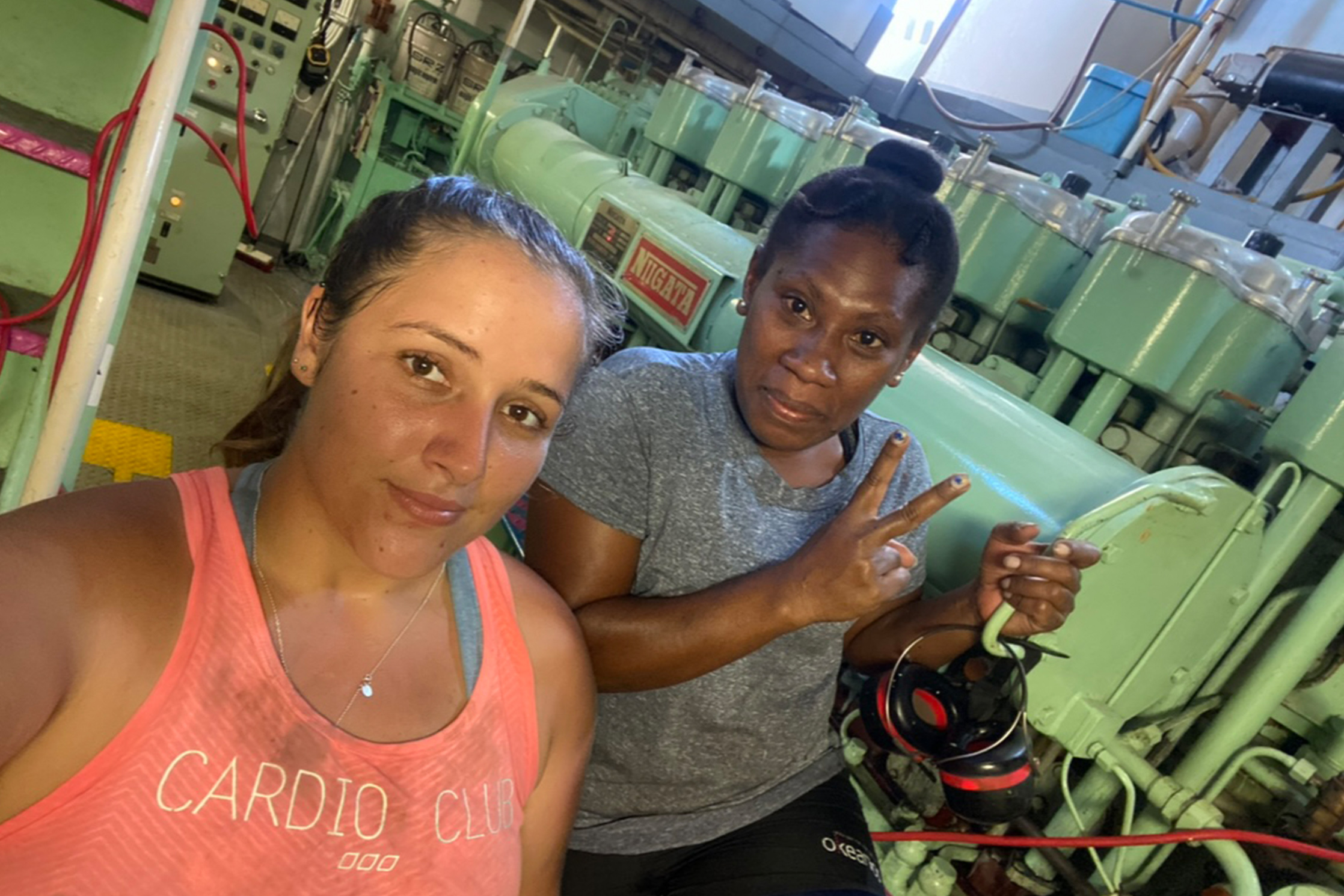
“I grew up living between Vanuatu and Australia and started working on ships when I was 17,” Victoria says.
“I started at the bottom as a deckhand and cook, then in 2017 I got my STCW (Standards of Training and Certification of Watchkeepers) in Santo, Vanuatu, and then my 300-kilowatt engineering ticket in 2018.”
Since then, she has been a 3rd engineer, travelling around Fiji, Nauru, Tuvalu, Norfolk Island, and the Solomon Islands before arriving in Nelson to pick up Huria Matenga 1 from Port Nelson in March 2020.
“I picked up the tug from here and sailed it back to Vanuatu and have been 2nd engineer on it ever since,” Victoria says.
Her dad, a shareholder in the company that bought Huria Matenga 1, arranged an interview for Victoria at NMIT to further her education.
Study has never been a goal for Victoria, preferring hands-on work. It was her dad that suggested she jump on a ship to give it a go, back when she left school in 2016.
“My dad always says that the engineer works with the ship's heart while the captain is the brains.”
“Since the brain can’t function without the heart, in my eyes, the engineer has a more important job,” she says. “You see more, you understand more and you’re more involved.”
Victoria enjoys her work and loves island life and being on the water. However, she recognises that being a woman in the maritime industry is tough.
“There aren’t many women in the industry,” she says. “I feel young women struggle to find careers pathways, as their traditional roles are still seen as carers for the family and not the wage earners. We get looked down upon and there are no support systems that I know of to encourage us.”
Victoria is grateful for her supportive crew, a respectful captain, and Ocean Logistics Ltd who paid for her training at NMIT.
In Vanuatu, she studied with several other girls who have since given up on their training to settle into more ‘traditional’ roles.
But Victoria knows there are plenty of employment opportunities within the maritime industry, where you don’t have to go out to sea if you don’t want to.
“There needs to be more scholarships for women in maritime. Females can do anything males can do,” she says.
For more information about our maritime courses at NMIT, visit our website(external link).


